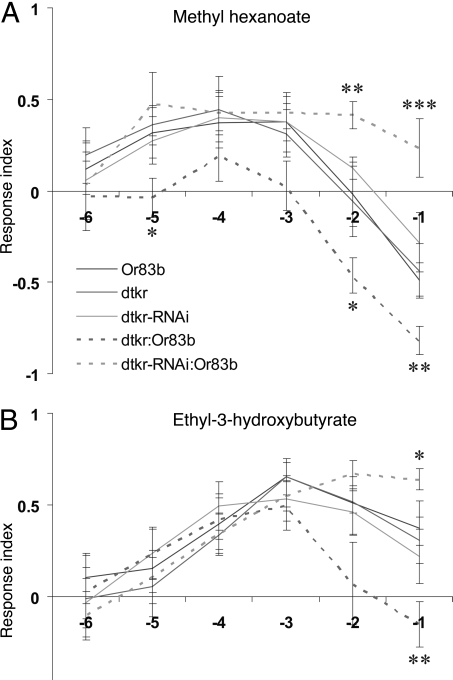Fig. 5.
Interference with tachykinin receptor (DTKR) expression in the ORNs alters odor-guided behavior. Olfactory behavior of adult Drosophila exhibiting altered expression of DTKR in the ORNs. Behavior is scored as a response index (RI) where positive values represent attraction and negative RIs indicate repulsion. Each of the average RI values is based on 15–25 replicates of 20 flies each. (A and B) Down regulation of DTKR in ORNs (dtkr-RNAi:Or83b) leads to an increased RI for tested odors at high concentrations compared with control flies (Or83 and dtkr-RNAi). Ectopic expression of DTKR in the ORNs (dtkr:Or83b), however, leads to a decrease in RI at high concentrations for the odorants tested: methyl hexanoate (A) and ethyl-3-hydroxy butyrate (B) compared with control flies (Or83b and dtkr). ANOVA, Tukey's posttest: *, P < 0.05; **, P < 0.01; ***, P < 0.001.

